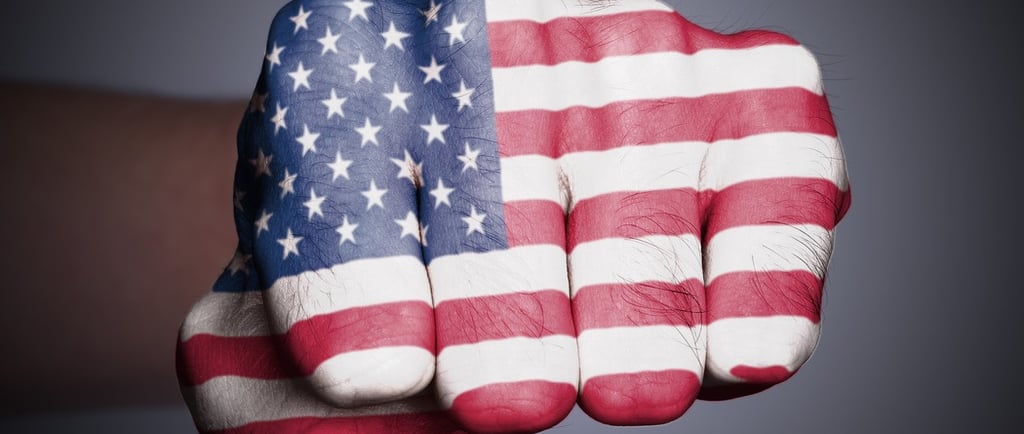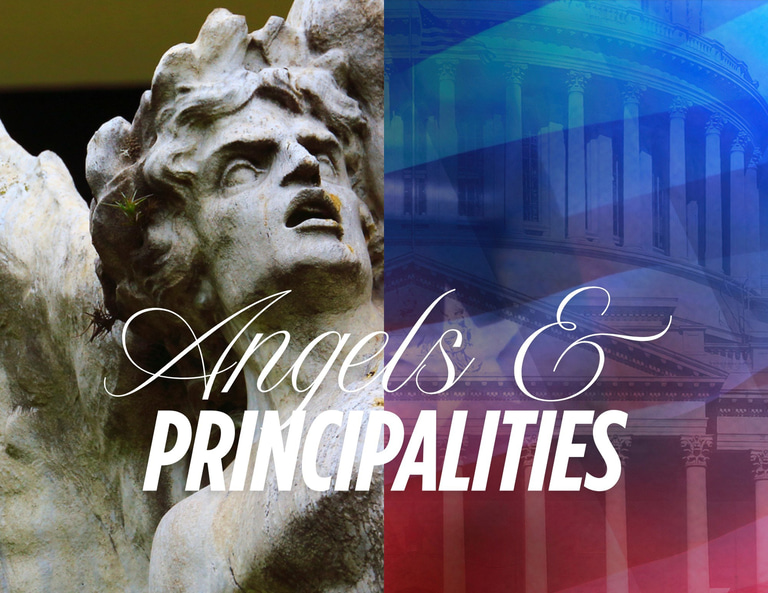Frank DuNN: Conversations at the junction of faith and politics
The Age of Greatness?
Americans love greatness. We have a narrative that tells us that we are the greatest nation in all human history. But significant numbers of Americans apparently think that America is not as great as it once was. Hence, their red caps are emblems of the movement to Make America Great Again. The trouble is, something may be drastically wrong not just with MAGA but with what we in general imagine "greatness" to be. .
Frank Dunn
3/25/20254 min read


Since I first saw a MAGA cap in 2016 I’ve had the urge to ask, “What is ‘great’ and when was America ‘great’?”
Common courtesy stops me, and common sense tells me I already know what the answers will be. “Answers,” not “answer” because the notions of greatness vary from person to person, but most of them have to do with fantasy more than reality.
When I was living in Washington, DC, the World War II Memorial opened on the National Mall. I went to visit it, in no small measure because doing so was an act of homage to my parents’ generation. Especially I wanted to pay respects because my father was off fighting in that war when I was born. He wrote me on my 25th birthday a very personal note enclosing the telegram my mother had sent him telling him he had a baby boy. He wrote that when he received the telegram aboard the USS Dauphin, he was headed towards the most frightening moment in his life, the Battle of Okinawa. He was spared. Not so fortunate the 12,500 who were killed or missing.
Walking around the World War II Memorial, I found myself focusing not on the columns and wreaths but on the small bas reliefs set in the walls ringing the plaza, depicting scenes of all the people who contributed to the war effort, some unstoried heroes and heroines. Not just the military, but that whole generation was to become known as the Greatest Generation. My folks, born on the eve of World War I, grew up during the 1920’s and finished high school when the Great Depression had sliced a gash in the nation’s lives and livelihood. In 10 years, they were living through war.
Perhaps they and their generation were the “greatest,” although it is hard to say that they were greater than the 620,000 people whose lives were lost in the line of duty in the Civil War.
What makes a person great very much depends on the frame of reference in which greatness is measured. The same goes for what makes countries great. Russia, Canada, the United States, China, and Brazil are the five largest countries in land mass in the world. Does that mean they are the greatest? Only if size is the determining factor. And what of people? Is fame or accomplishments or property or wealth or intellectual prowess or artistic talent the determinant of greatness?
My thesis is this: we—people in general—have got greatness all wrong. As a result, the world is way off-kilter.
Grounded as I am in the Christian story, I’m familiar with what Jesus had to say about greatness. It was nothing remotely like what the so-called “Christian Nationalists” would say. In fact, if they followed Jesus and took him as literally as some profess to take the Bible, there would be no such thing as “Christian Nationalism.” The term is an oxymoron. Following Jesus has never been about doing obeisance to power structures or national identity or race or creed or any other identifier that is used to separate us from one another.
Jesus is very clear about who his followers are. The greatest among them is the least and the last. In his community—he calls it the realm of God—whoever would be great must be last of all and servant of all. Doesn’t sound very triumphalist, does it? His model to his disciples, who seemed deeply concerned about rank and station within their community, was in fact a child whom he set in front of them to say what greatness in the kingdom was like. The text in Mark’s gospel doesn’t identify the gender of the child; but if by chance the child was female, then she would have been a symbol for radical powerlessness as the key to greatness. The text does tell us that the child was young enough to be held in Jesus’ arms. Utterly powerless, without any of the accoutrements of prestige, fame, or station.
We can, and usually do, swiftly discount that like so much else in the gospel accounts as unrealistic, impractical, unworkable. It’s not how the world operates. No, it’s not; and that is precisely the point. Nothing short of transformation (John’s gospel calls it “being begotten (born) from above”) is the path to greatness in God’s community.
I went on a search to see what other wisdom traditions say about greatness. Here is a link to a very brief survey of what Taoism, Zoroastrianism, Hinduism, Buddhism, Judaism, Jesus, the Quran, and Confucianism teach about greatness. There are some differences, but there is remarkable agreement on the practical way people live who are accounted “great.” Practicing compassion, kindness, generosity; faithfulness in devotion, meditation, and prayer; telling the truth; honoring one’s commitments; living in harmony and peace; practicing non-violence; self-control, including taking care of the physical body. If the strands in the Great Tradition diverge, it is over particularities and doctrines. Philosophies and cosmologies differ somewhat, but ethics governing human behavior and relationships is a category where there is agreement both wide and deep.
I look back on the nearly half-century I was a parish priest and pastor. I invested a lot of energy in faith formation, in building faith in families, in leadership development, justice ministries, corporate and personal acts of charity and mercy. I’m mystified at how we seem to have reared generations of people who seem to imagine that the whole of life is achievement—station, prestige, influence; power, authority, leverage; money, wealth, and privilege. Mercantilism is on display on the White House lawn as people are fired illegally and cast into joblessness. Resentment runs rampant against the poor, the vulnerable, the dispossessed. Privilege trumps principles. The creation is viewed not as sacred but as a repository of material to enrich the already rich. On it goes.
What is politics but a tug-of-war between rival interests, concerns, values? That’s a given. But greatness is far more than winning political fights and raking in the spoils. Greatness, as measured by all of those “great” leaders who’ve shown us the way to get past pettiness and selfishness, is about concern, compassion, and community.
The question before us is not what greatness is. It is how we might take the fragments now scattered all over society, shards of systems and networks of protection which, though flawed and imperfect, were at least protecting those most exposed to disaster, and build a society which can honestly be called “great.”
What do you think? What is your own take on “greatness”? Is greatness something that we can even aspire to if it means allowing ourselves to be “born all over again” into a new way of thinking, of living, of being?
